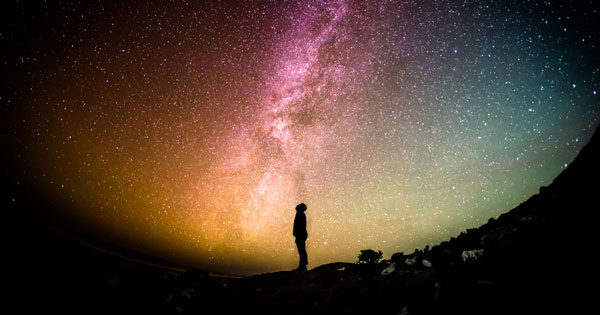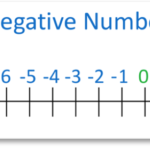Why Does the Universe Exist? Atheist Physicist Sean Carroll Answers…
by Brandon Vogt
Filed under Christianity and Science, Cosmology

I have to admit, when I first opened Sean Carroll's new book, The Big Picture: On the Origins of Life, Meaning, and the Universe Itself (Dutton, 2016) I immediately flipped to chapter 25, titled "Why Does the Universe Exist?" For many thinkers, ancient and modern, this is the philosophical question: why is there something rather than nothing? Your answer to this question drives your answers to most other big questions, including those about God, meaning, morality, and more. So I was interested in Carroll's response, especially in light of his "poetic naturalism."
(For an introduction to poetic naturalism, see past posts in this series.)
Does the Universe Need Outside Help?
Carroll begins the chapter with a glib anecdote from Sidney Morgenbesser, a philosophy professor at Columbia. Morgenbesser was once asked, “Why is there something, rather than nothing?” and purportedly answered, “If there were nothing, you'd still be complaining” (195). This, of course, is non-sense. If there were nothing, there would be nobody to complain. But thankfully, Carroll doesn't stop with the witticism (though one wonders why he quoted it at all—it certainly doesn't help his case.)
Carroll breaks the main question down into two sub-questions. First, he asks whether the universe could "simply exist". Could it just be a "brute fact" with no outside explanation, or does it require one? Second, he wonders, if the universe does in fact require an explanation, what is the best explanation (196)?
Let's start with his answer to the first sub-question. He writes, "The progress of modern physics and cosmology has sent a fairly unequivocal message: there's nothing wrong with the universe existing without any external help" (196). A few pages later he writes, "To the question of whether the universe could possibly exist all by itself, without any external help, science offers an unequivocal answer: sure it could" (201).
Note the double use of the word "unequivocal", which means "admitting of no doubt or misunderstanding; having only one meaning or interpretation and leading to only one conclusion."
It's worth pausing here to note that in a previous chapter titled "Accepting Uncertainty", Carroll writes (emphasis mine):
"It is this kind of [religious] stance—that there is a kind of knowledge that is certain, which we should receive with docility, to which we would submit—that I'm arguing against. There are no such kinds of knowledge. We can always be mistaken, and one of the most important features of a successful strategy for understanding the world is that it will constantly be testing its presuppositions, admitting the possibility of error, and trying to do better." (128)
But apparently, this open-minded prescription only applies to religious believers, and not poetic naturalists like Carroll, since as noted above, he twice admits to being "unequivocally" certain (i.e., without any doubt) that the universe could exist all by itself.
Carroll's confidence here should cause the discerning reader to naturally wonder, "How and where has modern science determined the universe could exist all by itself? Which experiments or calculations have proved that?" Unfortunately, Carroll never explains in this book. He just asserts that modern science has settled the issue and hopes readers trust his confidence.
One problem with this is that science simply can't say anything about why or how the universe exists since, by it's own limitations, the sciences are constrained to questions about the natural world (i.e., that which exists within the universe). It can't ask, or answer, or even weigh in on metaphysical "why" questions like "Why does the universe exist?" or "Why is the universe this way, and not that way?"
The Kalam Argument for God
So we're not off to a good start in the chapter. To his credit, Carroll doesn't stop here, though. He next considers the Kalam argument for God, made popular by Evangelical philosopher William Lane Craig. The argument's first premise says that whatever begins to exist has a cause for its existence (implying "out of nothing, nothing comes"). The second premise holds that the universe came into existence (i.e., it has not existed eternally in the past.) From those two premises we can conclude that the universe has a cause, and from there we can deduce different qualities of that cause.
If the Kalam argument is sound, then it shows the universe has a cause outside of itself, and therefore Carroll would be wrong in his "unequivocal" assertions. But is the argument sound? Assuming the terms are clearly defined and the logic valid, the only way to show that the argument is unsound is to refute one of its premises.
Carroll agrees. Surprisingly, he seems to accept the second premise, that the universe began to exist: "There seems to be no obstacle in principle to a universe like ours simply beginning to exist" (201). But it's the first premise he disagrees with. Specifically, Carroll thinks the ancient principle ex nihilo, nihil fit (out of nothing, nothing comes), which is implied in the premise, is indefensible. Even though, as he admits, the principle is "purportedly more foundational even than the laws of physics" (201) and that most philosophers throughout history have believed it, even ancient skeptics like Lucretius, Carroll says it is "perhaps the most egregious example of begging the question in the history of the universe" (202). Why? He writes:
"We are asking whether the universe could come into existence without anything causing it. The response is, 'No, because nothing comes into existence without being caused.' How do we know that? It can't be because we have never seen it happen; the universe is different from the various things inside the universe that we have actually experienced in our lives. And it can't be because we can't imagine it happening, or because it's impossible to construct sensible models in which is happens, since both the imagining and the construction of models have manifestly happened." (202)
There is a lot of confusion here, and it would take several articles to unpack all of it. But in essence, Carroll thinks the principle ex nihilo, nihil fit is false for three reasons: first because since the universe as a whole is "different" than things within the universe, the universe doesn't necessarily follow the same metaphysical principles as things within it; second because we can imagine something coming into being from nothing; and third because it's possible to construct "sensible models" in which something comes from nothing. Let's consider each proposal.
First, Carroll thinks the universe may have come into being without cause, even if nothing else in the universe has, because the universe is simply "different." But how does this follow? Metaphysical principles, such as the one under consideration, are independent of scale. Mice and men are "different", yet they both follow the same principle. So why think everything in the universe follows the principle but not the universe itself, which is nothing more than the collection of everything within the universe? (And lest you think this falls into the fallacy of composition, read Dr. Edward Feser's reply to that suggestion.)
Second, Carroll thinks it's possible to imagine something coming from nothing, which therefore refutes the principle. This argument goes back at least to David Hume but has famously been discredited, even by many Hume supporters. Why? Because it's impossible to conceive of the act of moving from non-being to being. Sure, we can imagine "nothing" at one moment—though I'm skeptical we can even do that—and then another moment picture something suddenly there, but this is not to imagine something coming from nothing. It is simply imagining two successive states of being, one first and then the other. It doesn't demonstrate that it is ontologically intelligible (or possible) for something to come into existence from nothing.
Third, Carroll points to "sensible models" in which something comes from nothing. What are these models? He never says, so it's hard to explore them. This is the last remaining reason to plausibly deny the principle, yet sadly Carroll provides no specifics.
Note again that Carroll doesn't engage with any counterarguments to his position, such as those supporting the principle. For starters, if something can come into being from nothing, then why don't we see this happening all the time? Why would it only happen once in time, with a single universe, rather than with many other universes or multiple things within our own universe? Why don't things just pop into existence all the time? Carroll never responds.
(Karlo Broussard wrote an excellent article covering five reasons the universe can't just exist by itself.)
Well, Why Not?
Carroll finishes this section by offering one more dismissive anecdote:
"In the Stanford Encyclopedia of Philosophy, an online resource written and edited by professional philosophers, the entry on 'Nothingness' starts by asking, 'Why is there something rather than nothing?' and immediately answering, 'Well, why not?' That's a good answer. There is no reason why the universe couldn't have had a first moment in time, nor is there any reason it couldn't have lasted forever, even without the benefit of any external causal or sustaining influence."
Here again we see a lot of confusion. So let's break it down into parts.
First, as far as I can tell, Carroll never engages in this chapter the second question about whether the universe needs a sustaining cause. This is disappointing because for many thinkers, including Aristotle and Aquinas, this is the main reason they believe in a First Cause of the universe. The universe may or may not have needed a cause to get it going, but it certainly needs one to keep it in existence, here and now. Carroll never weighs in on the question.
Second, he concludes all his previous remarks in regards to the first question—does the universe require an initial cause?— with an answer (a "good answer"), which is essentially an appeal to authority. He references an encyclopedia edited by "professional philosophers" at Stanford, presumably to suggest they should know what they're talking about. But the answer he cites isn't really an answer—it's a dismissal of the question. Worse, it fails to engage or even acknowledge any of the arguments against the view that something can come from nothing.
This is really disheartening, especially for someone as bright as Carroll. I can't imagine he would be comfortable with that answer to any other serious question. For example, I'm guessing he would be frustrated if he asked me, "Why are there so many different species of life on earth?" or "Why is space itself expanding?" and I responded, "Well, why not?" That's not a good answer; that's avoiding the question. Carroll would be frustrated by such dismissals, and for the same reason, his readers should be frustrated by his answers to the much more interesting and foundational questions about the universe.
If the Universe Has an Explanation, What Is It?
In the final few pages of the chapter, Carroll switches gears. He assumes, for the sake of argument, that the universe does require an explanation for its existence. But in that case, what is the explanation?
According to Carrol, "The answer is certainly 'We don't know'" (202). Notice again his striking assurance. He's certain we don't know the answer—not confident or convinced, but certain. How did he arrive at such certainty, especially when earlier in the book he cautions against being certain about anything? He doesn't say. And how can we be certain that "we" (whatever that means) don't know something? Isn't there a chance that someone, somewhere knows the answer even if some, most, or all the rest of us are confused? I would think so.
But certainty aside, why exactly does Carroll think we don't know what would explain the universe (if it had an explanation)? Mostly because he finds none of the current proposals satisfying. Modern theories of gravity may be a popular choice, but as Carroll observes, "that can't be the entire answer" since the theories don't explain themselves, and still demand an outside explanation (203). They only kick the question up a level. The same is true about other theories relying on the laws of physics as an ultimate explanation.
The only other possible candidate would be God. But Carroll thinks that explanation fails since it fails to answer the question, "Why does God exist?" It kicks the question up just as other proposals do. Of course, Carroll admits, theists reason that God is by definition necessary since his nature is to exist (unlike our own human nature, which doesn't necessitate existence.) But Carroll doesn't buy that. God, if he exists, can't be a necessary being. Why? Because, Carroll says, "there are no such things as necessary beings" (203). Talk about an egregious example of question begging!
With not a little irony, Carroll counsels just a couple sentences later, near the end of the chapter, "We can't short-circuit the difficult task of figuring out what kind of universe we live in by relying on a priori principles" (203). Would that he take his own advice!
In the next post in this series, we'll examine Sean Carroll's thoughts on whether free will is real or imaginary. Stay tuned!
Related Posts
Note: Our goal is to cultivate serious and respectful dialogue. While it's OK to disagree—even encouraged!—any snarky, offensive, or off-topic comments will be deleted. Before commenting please read the Commenting Rules and Tips. If you're having trouble commenting, read the Commenting Instructions.












